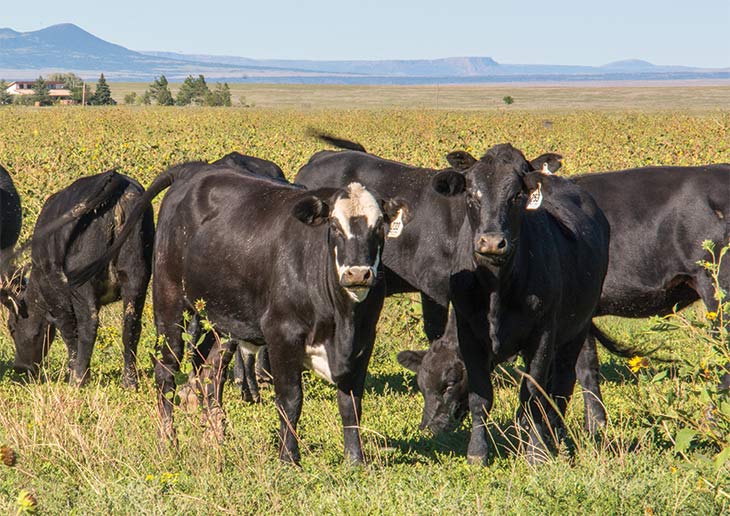By age 40, Frank and Jeannie Burton were already planning ahead for the unexpected. In 1979, just a few years into their ranching career, the New Mexico couple set up Burton Enterprises Inc. to keep their business accounts separate from their personal accounts.

Photo by Sheryl Smith-Rodgers
“None of us lives forever, so we need to think in terms of how we’ll pass on what we’ve accumulated to the next generation,” Jeannie says. “We wanted to do that in a way that was beneficial and meaningful to each of our children.”
Take the advice of the Burtons, now in their 70s — it’s never too early to plan how you’ll transfer your farm or ranch to the next generation.
Conversations and decisions on the subject can be tough, especially without expert guidance. That’s why some folks prefer to avoid the topic. In a recent study, 89 percent of Minnesota farmers surveyed had no up-to-date business transfer plan.
Resources
Need more guidance? Check out these free online resources:
Farm Transitions. Funded by the USDA Risk Management Agency, this website can help you prepare for when and how your operation will change hands. Fill out questionnaires and worksheets to create a simplified strategy toward planning your estate.
Paper copies of the 161-page “Farm Transition Toolkit” may be purchased for $10 from the Minnesota Institute for Sustainable Agriculture by calling (800) 909-6472.
AgTransitions. This free online resource was developed by the University of Minnesota to help farmers and ranchers pass their businesses to the next generation. Use the site’s online tools to nail down goals, examine transfer strategies and tax issues, and develop a written transfer plan. AgTransitions has links to more than 80 online resources along with tips, worksheets and videos.
Farm Journal Legacy Project. Begun in 2008, this 10-year project aims to help farm families experience multigenerational success. Through the website, you’ll get access to workshops, planning tools, case studies and more.
www.farmjournallegacyproject.com
Estate planning videos. A 12-part video series on estate planning, narrated by Dr. Wayne Hayenga, is available on YouTube. The videos discuss estate planning laws, family considerations, the components of a will, living trusts and durable general power of attorney.
Not surprisingly, the common dilemma is expected to grow. The USDA forecast that between 2015 and 2019, American farmland owners — about a third of whom are at least age 65 — will transfer 93 million acres.
Where do you start when deciding how to pass on your operation? Here’s what to consider first:
Don’t procrastinate.
“The most important thing is that you start,” says Dr. Tiffany Lashmet, an agricultural law specialist with the Texas A&M AgriLife Extension Service in Amarillo. “But it can be so overwhelming that many people don’t know how to get the ball rolling.”
What you do is sit down and talk.
“You need to decide what your goals are going forward,” Lashmet says. “Do you want to keep your farm or ranch intact? Or split it evenly? Or split it equitably? What do your heirs want? You’ve got to figure out everybody’s goals.”
Bring experts on board.
“It’s a good idea to involve an estate planning team,” Lashmet says. “I’d look for an attorney who specializes in estates. Also involve an accountant, which will probably be your bookkeeper who’s familiar with your finances.”
Make a list.
“Create an inventory of everything you own, not just land,” Lashmet says. “That’s important because, first, you’ll know what you have. Second, the list will help determine if you’ll need to deal with any potential estate tax issues while developing your plan.”
Consider “what if” scenarios.
Tragedies can and do happen.
“We’ve found that in 75 percent of our cases, a parent outlives a child,” says Dr. Wayne Hayenga, professor emeritus and Extension specialist with Texas AgriLife Extension. “What if you plan to pass your business to your son, but then he dies? So you need a contingency plan. Things don’t always go as initially planned.”